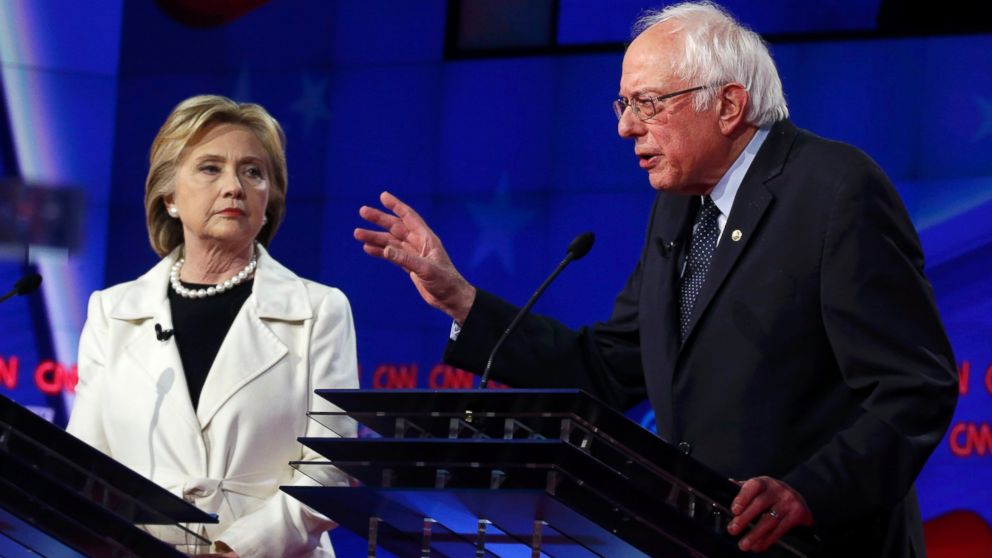ANALYSIS: Healing Will Have to Wait, as Democratic Debate Turns Personal
—BROOKLYN, N.Y. -- If the Democratic race is over, nobody has told Bernie Sanders.
And if Hillary Clinton’s only remaining task is to make sure Sanders supporters stay in the Democratic fold, that talking point hasn’t made its way into Clinton’s headspace.
A debate in New York -– the home state, by some definition of both candidates -– exposed divisions between Sanders and Clinton that border on personal disdain. Though it’s late in the voting calendar, the debate drew out arguments that the two Democratic candidates have skirted for the better part of a year.
“I do question her judgment,” Sanders said, citing her vote for the Iraq war and her support of trade deals. “I don’t believe that this is the kind of judgment we need to be the kind of president we need.”
“Do we really feel confident about a candidate saying she's going to bring change in America, when she is so dependent on big money interests? I don't think so,” Sanders added.
Clinton was indignant in responding to the suggestion that she’s not qualified for the presidency. Then she went further, citing a much-publicized New York Daily News editorial board session where Sanders struggled to enunciate specific policy positions.
“Talk about judgment and talk about the kinds of problems he had answering questions about even his core issue -- breaking up the banks,” Clinton said. “I think you need to have the judgment on day one to be both president and commander-in-chief.”
The tone was a contrast to the last debate, held more than a month ago in Florida. That encounter revealed weary candidates who were at times hesitant to engage, reflecting a race that seemed to be petering out.
Sanders came into the debate on a winning streak. Yet the attacks were sharper than the race is competitive. Clinton wants to stop Sanders’ winning streak in New York, though her delegate cushion remains substantial.
Still, the dynamics of the race meant it took until this moment for the deepest divisions to present themselves. It made for a lively debate, yet one that appears likely to force Democratic healing to wait a while longer.
Sanders sought to portray Clinton as in the pocket of special interests, and attacked her for not releasing transcripts of paid speeches to big banks. Clinton shot back at Sanders for not releasing his tax returns, and called her opponent “a largely very reliable supporter of the NRA.”
In a fight with resonance in the African-American community, Sanders reiterated an attack on Clinton and her husband for using the term “super-predator” in pushing for President Clinton’s crime bill.
“It was a racist term. Everybody knew it was a racist term,” Sanders said.
Clinton offered a half-apology for the crime bill that Sanders, incidentally, voted for: “I'm sorry for the consequences that were unintended.”
Clinton is clearly cognizant of the challenge posed by Sanders. She met a critique from her left by saying she would sign a $15-an-hour federal minimum wage, in an effort to take away a key Sanders talking point.
As she’s done of late, Clinton used President Obama as a shield against Sanders attacks.
“I’m getting a little bit concerned here. I really believe the president has done an incredible job here against great odds, and needs to be supported,” she said. “It's easy to diagnose the problem. It's harder to do something about the problem.”




